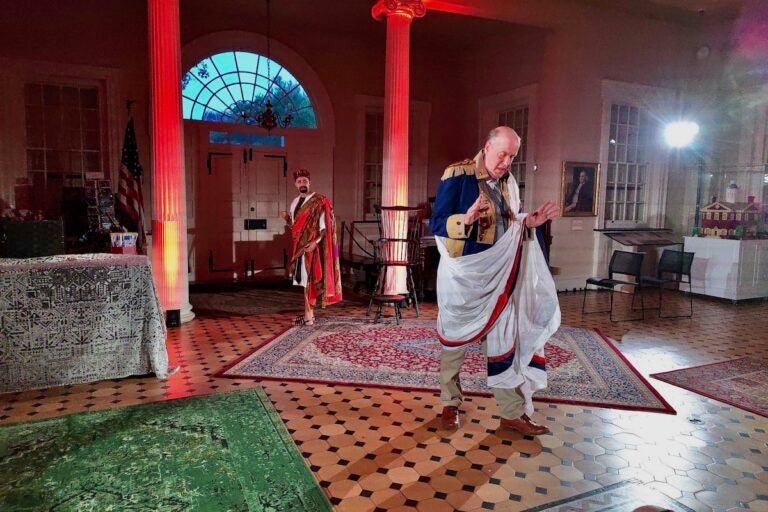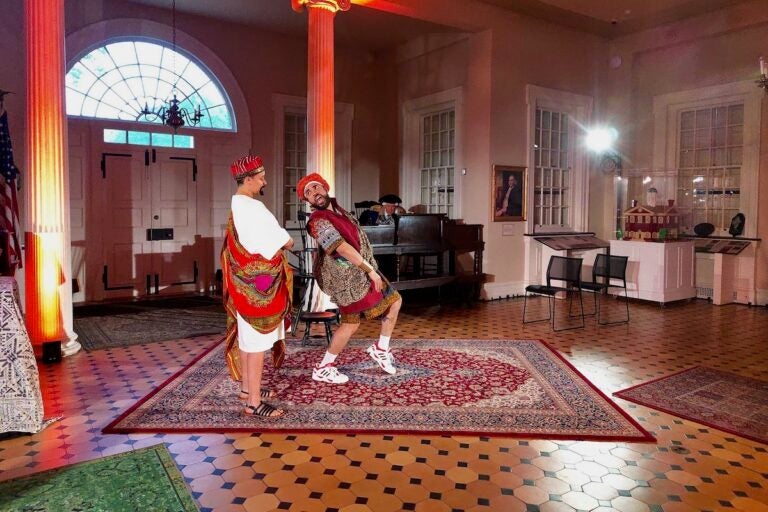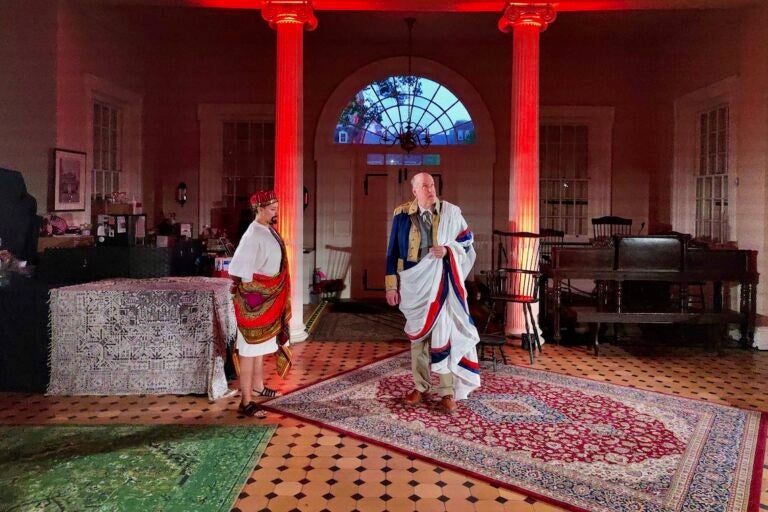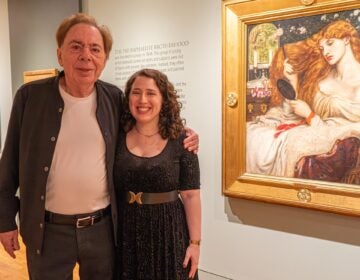‘Cato (Remixed)’ examines the Founding Fathers’ infatuation with ancient Rome
The original “Cato” was a favorite play of George Washington. Philadelphia Artists’ Collective reimagines it with a critical lens.
From Philly and the Pa. suburbs to South Jersey and Delaware, what would you like WHYY News to cover? Let us know!
In 1774, the American colonies, in a gesture anticipating the coming revolution, banned theater.
The Continental Congress met in Philadelphia Carpenters Hall to draft the Articles of Association, unifying the colonies in opposition to taxes and policies imposed by England. In an effort to steel the colonies for a coming struggle that might test their moral fortitude, the Congress lumped theater with cockfighting, horse racing and “expensive diversions” in which the citizenry would not be able to indulge.
The ban included one of the most popular plays of the day, Joseph Addison’s “Cato,” a personal favorite of George Washington. The play included lines that fed the Founding Fathers’ revolutionary fervor. Phrases like “Give me liberty or give me death” and “I only regret that I have but one life to lose for my country” paraphrase Addison’s script.
Now, as though thumbing its nose across two and a half centuries, a version of “Cato” is being produced in the very same room where the Continental Congress had once banned it.
Philadelphia Artists’ Collective’s “Cato (Remixed)” opens this weekend in historic Carpenter’s Hall. Director Michael Norris believes no play had ever been produced there since Congress met 251 years ago.
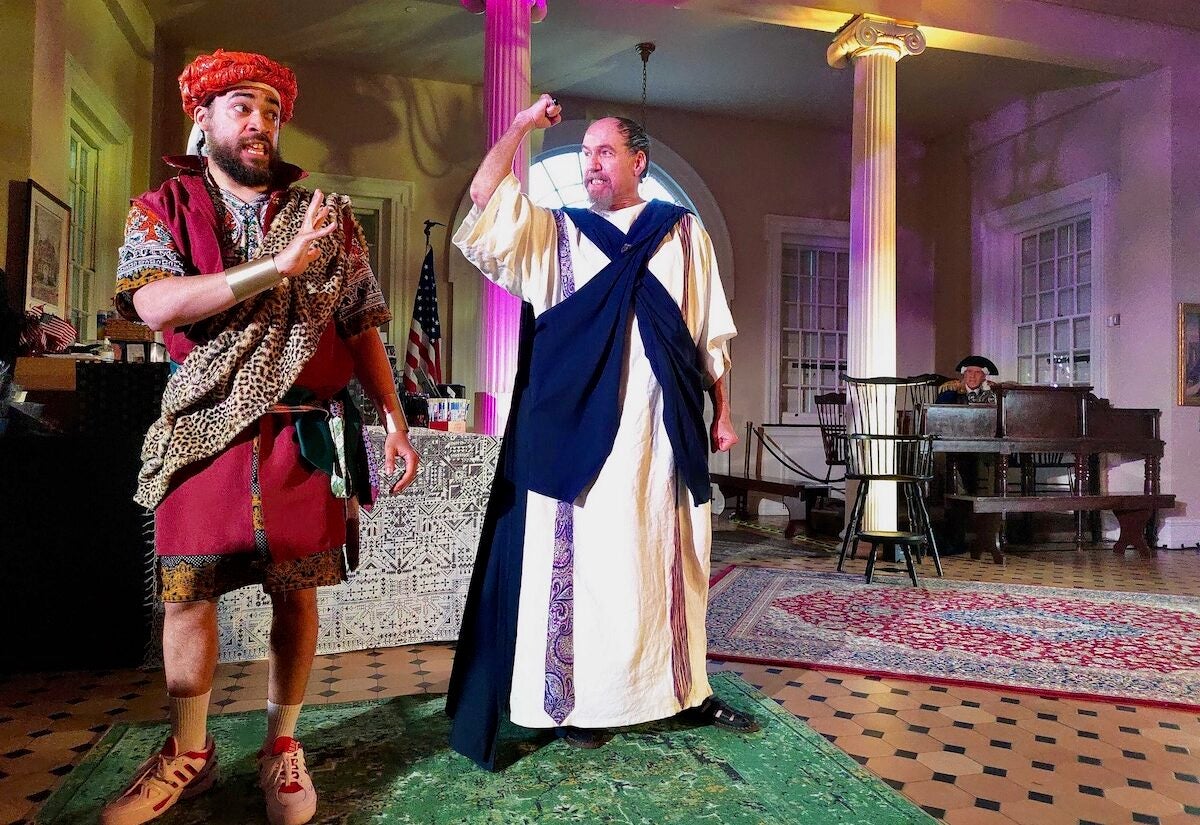
“Cato” has not been staged in Philadelphia for generations and is likely unfamiliar to contemporary theater goers. The story is set in ancient Rome as the title character, a Roman senator opposed to Caesar, is in Numidia —now Tunisia — awaiting the approach of Caesar’s army. The tragedy that unfolds involves arguments about tyranny, liberty and the preservation of the ideals of the republic through self-sacrifice.
“It’s not a great play, but the ideas in it are fascinating,” said the collective’s Producing Artistic Director Damon Bonetti, the director of “Cato (Remixed).”
“I think there’s a way that we could do this for a contemporary audience that explodes the myth of nationalism,” he said. “Explodes the myth of patriotism that gives agency to the characters in this play who didn’t have agency back then.”
The original “Cato,” as written by Addison and embraced by the Founding Fathers comes with a lot of baggage. Addison, an English poet and politician of the Whig party, wrote the play as a kind of political treatise about the divisiveness of partisan politics. Although loosely based on the historical Cato, Addison invented much of his story to support his thesis on political Stoicism.
Fifty years later, George Washington and his peers embraced Cato’s guiding philosophy of Stoicism. Already attuned to Roman antiquity as a model for a modern republic, the Founding Fathers adopted Addison’s play as a script for their revolution.
“Cato, the character, displayed the public virtue that the American rebels were desperately trying to retrieve,” said historian Shawn McGhee, author of “No Longer Subjects of the British King: The Political Transformation of Royal Subjects to Republican Citizens.”
“There’s this appreciation of not only Protestant ethics and Protestant simplicity and frugality, but there’s a real attachment to the classical world,” he said. “However pseudo-historical their understanding of the classical world was, many of the founding generations saw Cato as the ultimate public servant.”
“Cato” allowed the founding generation to regard ancient Rome through the lens of their own political needs. As such, the Philadelphia Artists’ Collective is now regarding Washington’s admiration of Cato through their own contemporary lens.
“Cato (Remixed)” is not the Founding Fathers’ “Cato.”
For starters, Cato and George Washington become one. Playwright Eli Lynn conflates the Roman senator and the rebel general into the same persona, performed by Peter Schmitz wearing a costume that layers a toga over a colonial uniform.
Lynn also gives the surrounding characters far more agency in their decision-making than Addison ever allowed. In the original, the Numidian prince Juba idolizes Cato to the point of squashing his own national heritage in favor of becoming more Roman. The women are love interests only to the extent that love, per Cato, must be sacrificed for the good of the republic.
In Lynn’s script, the characters begin to realize they are players trapped in a play, and ponder how to change the plot. One ancient Roman character spies an incongruous George Washington lurking in the shadows beyond the stage lights and wonders, “Who are you?”
It becomes a revelation.
“Some begin to opt out of the story,” Bonetti said, “and actually, literally, leave the play and leave the building.”
“Cato (Remixed)” will be performed at Carpenter’s Hall until May 18.

Get daily updates from WHYY News!
WHYY is your source for fact-based, in-depth journalism and information. As a nonprofit organization, we rely on financial support from readers like you. Please give today.




